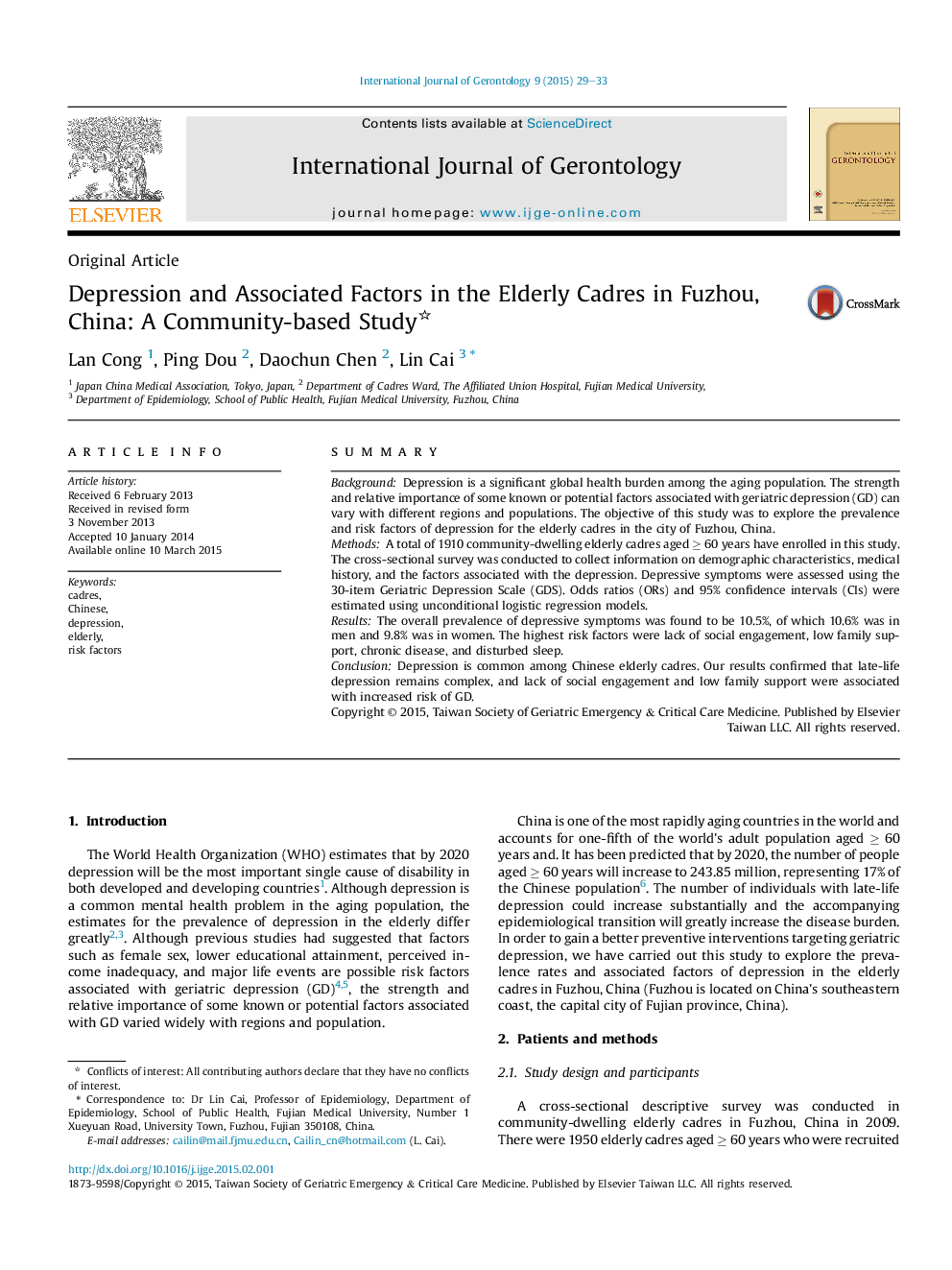| Article ID | Journal | Published Year | Pages | File Type |
|---|---|---|---|---|
| 3325280 | International Journal of Gerontology | 2015 | 5 Pages |
SummaryBackgroundDepression is a significant global health burden among the aging population. The strength and relative importance of some known or potential factors associated with geriatric depression (GD) can vary with different regions and populations. The objective of this study was to explore the prevalence and risk factors of depression for the elderly cadres in the city of Fuzhou, China.MethodsA total of 1910 community-dwelling elderly cadres aged ≥ 60 years have enrolled in this study. The cross-sectional survey was conducted to collect information on demographic characteristics, medical history, and the factors associated with the depression. Depressive symptoms were assessed using the 30-item Geriatric Depression Scale (GDS). Odds ratios (ORs) and 95% confidence intervals (CIs) were estimated using unconditional logistic regression models.ResultsThe overall prevalence of depressive symptoms was found to be 10.5%, of which 10.6% was in men and 9.8% was in women. The highest risk factors were lack of social engagement, low family support, chronic disease, and disturbed sleep.ConclusionDepression is common among Chinese elderly cadres. Our results confirmed that late-life depression remains complex, and lack of social engagement and low family support were associated with increased risk of GD.
